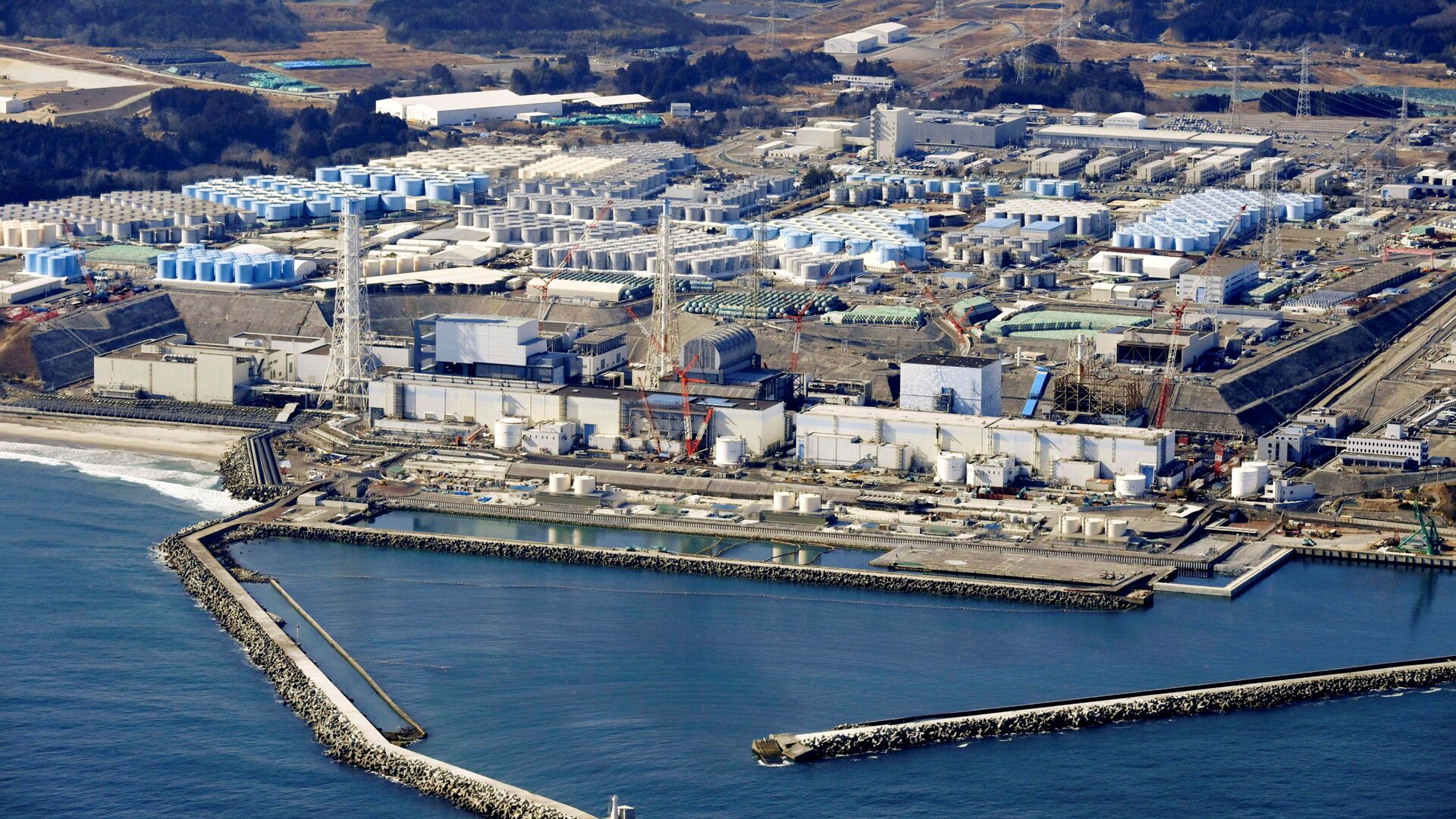https://sputnikglobe.com/20211222/pacific-collective-vows-to-oppose-japan-dumping-fukushimas-nuclear-waste-in-ocean-1091723668.html
Pacific Collective Vows to Oppose Japan Dumping Fukushima’s Nuclear Waste in Ocean
Pacific Collective Vows to Oppose Japan Dumping Fukushima’s Nuclear Waste in Ocean
Sputnik International
In April, Japan announced that it would dump over a million tons of wastewater from Fukushima’s crippled nuclear reactors in the Pacific Ocean from 2023. Soon... 22.12.2021, Sputnik International
2021-12-22T15:18+0000
2021-12-22T15:18+0000
2023-07-31T17:00+0000
fukushima daiichi nuclear power plant
pacific ocean
international atomic energy agency (iaea)
fumio kishida
japan
china
nuclear waste
pacific
wastewater
fukushima
https://cdn1.img.sputnikglobe.com/img/07e5/04/0d/1082622078_0:160:3073:1888_1920x0_80_0_0_04c3ab36476bf83bc66aa248e9c93d23.jpg
The Pacific Collective on Nuclear Issues, a group of civil society and student organisations, has categorically denied the veracity of a report released by Tokyo Electric Power Company Holdings, Inc. (TEPCO), vowing to oppose Japan's planned mass disposal of wastewater stored at the tsunami-wrecked Fukushima nuclear plant.The strong objection comes a day after TEPCO submitted a detailed plan to the nuclear regulation authority seeking the release of accumulated wastewater into the sea. TEPCO said it would use an underwater tunnel to dispose of 1.28 million tons of contaminated water of the plant at a depth of 12 metres in the sea.The group said that the Radiological Impact Assessment violates several issues, including laws and international nuclear treaties that protect the Pacific peoples and environment.The collective accused Japan of wrongly prioritising convenience and costs over the short term and long term environmental and human cost of their planned actions. The group urged the Japanese government to develop alternatives to TEPCO's plans for using an Advanced Liquid Processing System (ALPS) method to "treat highly radioactive wastewater to safe levels" for discharge into the Pacific Ocean. TEPCO claimed radioactive contamination would be removed from wastewater under the ALPS method, except toxic tritium.The Fukushima nuclear plant suffered a triple meltdown in 2011 following a massive earthquake and tsunami. In October, Prime Minister Fumio Kishida assured people and foreign governments that Japan would address the concerns. However, the Japanese politician emphasised that the disposal of contaminated water in the ocean is the most realistic option.
pacific ocean
japan
china
pacific
fukushima
Sputnik International
feedback@sputniknews.com
+74956456601
MIA „Rosiya Segodnya“
2021
Rishikesh Kumar
https://cdn1.img.sputnikglobe.com/img/07e4/08/04/1080055820_0:0:388:389_100x100_80_0_0_40018ee210946d65d49ffba4f4c008e1.jpg
Rishikesh Kumar
https://cdn1.img.sputnikglobe.com/img/07e4/08/04/1080055820_0:0:388:389_100x100_80_0_0_40018ee210946d65d49ffba4f4c008e1.jpg
News
en_EN
Sputnik International
feedback@sputniknews.com
+74956456601
MIA „Rosiya Segodnya“
Sputnik International
feedback@sputniknews.com
+74956456601
MIA „Rosiya Segodnya“
Rishikesh Kumar
https://cdn1.img.sputnikglobe.com/img/07e4/08/04/1080055820_0:0:388:389_100x100_80_0_0_40018ee210946d65d49ffba4f4c008e1.jpg
fukushima daiichi nuclear power plant, pacific ocean, international atomic energy agency (iaea), fumio kishida, japan, china, nuclear waste, pacific, wastewater, fukushima
fukushima daiichi nuclear power plant, pacific ocean, international atomic energy agency (iaea), fumio kishida, japan, china, nuclear waste, pacific, wastewater, fukushima
Pacific Collective Vows to Oppose Japan Dumping Fukushima’s Nuclear Waste in Ocean
15:18 GMT 22.12.2021 (Updated: 17:00 GMT 31.07.2023) In April, Japan announced that it would dump over a million tons of wastewater from Fukushima’s crippled nuclear reactors in the Pacific Ocean from 2023. Soon after the announcement, several countries, including South Korea and China, issued strong objections.
The Pacific Collective on Nuclear Issues, a group of civil society and student organisations, has categorically denied the veracity of
a report released by Tokyo Electric Power Company Holdings, Inc. (TEPCO), vowing to oppose Japan's planned mass disposal of wastewater stored at the tsunami-wrecked Fukushima nuclear plant.
"Japanese Government and TEPCO must abandon the use of the Pacific Ocean as a dumping ground for its radioactive wastewater from the Fukushima Daiichi Nuclear Power Plant, to ensure that no further harm is caused to the Pacific Ocean, it's environment and its peoples", the group said on Wednesday.
The strong objection comes a day after TEPCO submitted a detailed plan to the nuclear regulation authority seeking the release of accumulated wastewater into the sea.
TEPCO said it would use an underwater tunnel to dispose of 1.28 million tons of
contaminated water of the plant at a depth of 12 metres in the sea.
The group said that the Radiological Impact Assessment violates several issues, including laws and international nuclear treaties that protect the Pacific peoples and environment.
The collective accused Japan of wrongly prioritising convenience and costs over the short term and long term environmental and human cost of their planned actions.
The group urged the Japanese government to develop alternatives to TEPCO's plans for using an Advanced Liquid Processing System (ALPS) method to "treat highly radioactive wastewater to safe levels" for discharge into the Pacific Ocean.
TEPCO claimed
radioactive contamination would be removed from wastewater under the ALPS method, except toxic tritium.
The Fukushima nuclear plant suffered a triple meltdown in 2011 following a massive earthquake and tsunami.
In October, Prime Minister Fumio Kishida assured people and foreign governments that Japan would address the concerns. However, the Japanese politician emphasised that the disposal of contaminated water in the ocean is the most realistic option.




